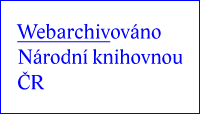




Vernisáž Kajsa Dahlberg & Jirka Skála: In my hands, every day, In my sight, every day
Do 27.10.2017 bude v galerii Hunt Kastner, Bořivojova 85, Praha 3, přístupná výstava Kajsa Dahlberg & Jirka Skála: In my hands, every day, In my sight, every day.
Technologie, která měla usnadnit a zlepšit vykonávání každodenních činností najednou zpětně působí na proces našeho rozhodování, a neovlivňuje pouze práci, ale i volný čas proměňuje ve výdělečnou činnost. Existuje tak mezi dvěma odlišnými vizemi; jednou, která vnímá optimalizaci práce jako cestu k osvobození pracujících, získání času navíc, zvýšení platů a tedy překonání hierarchie, decentralizování dohledu a možná i pomoc přivést lidstvo k harmonii, a druhou, která vnímá zvýšenou všudypřítomnost technologie jako základního nástroje dalšího ovládání a vykořisťování mas, rozšíření moci, naprostého dohledu a zbohatnutí vládnoucí třídy. Ačkoli se druhý scénář zdá být realitě bližší, existuje způsob, jak nastoupit cestu k první variantě?
………..
Kajsa Dahlberg and Jiří Skála create works based on what seem to be rational developments in technology, guided by pure logic but actually feed back into our everyday lives and create situations of emotional complexity regarding our use of it, where the one cannot be easily disentangled from the other.
Technology meant to simplify and improve our lives suddenly interferes into our decision-making process, with optimization not only affecting labour but turning even leisure and idleness into actions of monetary value.
Historically, the discourse has evolved between two very disparate visions, on the one hand those who saw the optimization of labour as a way to liberate the worker, and the homemaker for that matter, free up time for leisure or intellectual activity, increase salaries and therefore break down hierarchies, decentralize control and possibly even help harmonize social relations and on the other hand those who saw the increased omnipotence of technology as the ultimate tool to further oppress and exploit, increasing the power, surveillance capabilities and wealth of the ruling class.
We might agree that currently the latter scenario seems significantly closer to our reality, indicating that without changes to the underlying framework it is not likely that technology will radically improve the lives of the masses – we are left to wonder how to possibly move towards the first?




 Creative Commons Attribution
Creative Commons Attribution